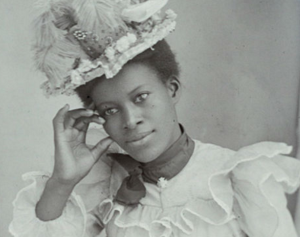Hey y’all. This is another video in a series I’m doing with Everyday Feminism, which is dedicated to helping you stand up to and break down everyday oppression.
As you can maybe tell from all the pixels: I got a new camera, so yay for me. It’s a little weird being so high-def, but I’m going to work through because this video is really important to me. It’s about social anxiety, which is something that I suffer from. And more specifically, it’s about how to support a friend or partner with social anxiety. So to start, I just wanted to introduce what it really is.
Social anxiety disorder is an anxiety disorder in which someone has an excessive fear of social situations. It usually involves intense nervousness and self-consciousness – from a fear of being closely watched, judged, and criticized by other people. People who suffer from this are unreasonably afraid to make mistakes or look bad or be embarrassed in public or in front of other people. As a result of these fears, social situations are almost always uncomfortable, and they can even cause bad panic attacks.
Much of the time, the person with social anxiety knows that these fears are unreasonable, but they’re unable to simply overcome them. Social anxiety causes distorted thinking, which means that socially anxious people might hold false beliefs about social situations. They might think that others have negative opinions of them when they really don’t, find it hard to work and eat in front of others, avoid using public bathrooms, or going to group events. They might find it hard to even talk on the phone – or in my case, I find it very hard to answer the door.
Like other anxiety disorders, social anxiety doesn’t affect someone in just one way, though. It does cause intense anxiety in social situations, which might lead them to avoid situations like that, but when those are unavoidable, there are plenty of physical symptoms that anxiety brings with it. Fun things like a pounding heart, uncontrollable sweating, shaking, and my favorite: I love to get some upset stomach and diarrhea when I’m very anxious. So that’s fun, always.
If you have a loved one or a partner or a friend who has social anxiety, they might find it difficult to do things that are seemingly small. Like going to the grocery store because they might feel like everyone’s watching them there or they are afraid that they will run into someone they know and have to make small talk. They might just be worried they’ll make a fool of themselves when they’re checking out with the cashier. To a non-anxious person, these situations might happen, but they seem like small inconveniences or exaggerations, but to someone with social anxiety, they can feel like the end of the world when they happen.
Another thing your loved one might struggle with is making phone calls. They might be afraid to call people or answer the phone. They might overanalyze the conversation they had on the phone. Overthinking what they did or did not say or the tone they said it in. Or a meeting or a class tomorrow might completely disrupt their time tonight. They might not be able to stop thinking about it, about what might go wrong tomorrow. They can’t relax; they can’t sleep that night. They stress about it until it’s over. And then when it’s over they stress about what they said or how they looked – things like that.
Simply put, if your partner is overrun by anxious thoughts surrounding normal social situations they might be suffering from social anxiety. And this kind of reaction can be very hard to understand if you don’t have an anxiety disorder, and that’s okay. There are still ways you can you can help, so I wanted to go over that.
Now that I’ve explained in broad strokes what social anxiety involves, let’s talk about how to support a loved one who suffers from it.
As someone who suffers personally from social anxiety, I have an idea of what’s most helpful for me. But it’s really important that you talk to your friend or partner to determine what they need most from you and what they want from you in relation to their anxiety. This list is simply to give you and your partner an idea of where to start but they’re ultimately the best of what they need from you.
1. Learn About the Anxiety Disorder
The first thing on my list is learn about the anxiety disorder. Recognizing the validity of an illness is essential to supporting someone with it – realizing that it’s a real, valid thing that they’re suffering from. So learn about it so you have an understanding of what they’re going through even if you don’t feel it yourself.
2. Acknowledge That You Can’t Fully Understand the Experience
That leads to number two, which is acknowledging that you don’t understand the experience of having a panic attack or some kind of irrational anxiety, if that’s the case. Because you don’t need to have experienced irrational anxiety to be compassionate towards someone who struggles with it. Admitting that can actually be a really good starting point, like: “I don’t understand what that feels like, but I can tell it feels bad, and I am here for you.”
3. Encourage Treatment If That’s Accessible
That’s not always going to be accessible, but if it is, anxiety is largely treatable. It might find a few tries to find out what kind of treatment for your partner or friend. Medication helps me a lot, but a lot of people get side effects that they don’t like and it makes meds less ideal for them. I’ve also done some cognitive behavioral therapy, and that gave me the tools to help myself in times of panic or stress.
Helping your partner decide on a course of treatment to try just like we would with any other illness lets them know that you care about their well-being in a concrete way. You have to remember, though, seeking help is extremely hard, especially for something that is stigmatized like mental illness. And the decision ultimately rests with your partner, so don’t beg or threaten or guilt them into doing treatment. They need to do what they believe is best.
4. Celebrate the Small Things
Let’s say your friend agrees to go somewhere that you know she was dreading or your partner expressed how difficult it was to make small talk at school that day, or at work. Why not celebrate the accomplishment of them getting it done?
My partner and I celebrate small victories all the time. We don’t do anything over-the-top or extravagant. He just makes a point of saying “I’m really proud of you for getting that done today. I know that that was a struggle,” and we choose to do it. It gives me more momentum to keep going.
5. Give Your Partner the Space to Have Bad Days
This is important. We all have bad days, but with anxiety, these days can feel almost unbearable. They can ruin plans. They can make you feel useless. They can make you feel guilty and scared. While support, love, and concern are incredibly helpful to those that you care about they can’t fix anxiety. That’s critical to understand as a non-anxious person. Make sure that your partner or friend knows that you love them regardless. The bad days will pass and that’s really important.
6. Be Gentle
Anxiety, and especially social anxiety, can amplify and catastrophize even the smallest statements or tone of voice. If your partner or friend is having a bad anxious day, try to be careful with your words. Telling someone that everything will be okay, these feelings will pass, that you’re there for them. These things, if you’re there, they need them. They can do a lot of good but asking something like “Why are you so anxious?” in a certain tone can come across as judgmental, and it can make them feel a lot worse and maybe defensive.
Just be gentle with them when they’re having days that are clearly hard for them and you’ll avoid unnecessary hurt. You can still ask them how they’re feeling; just do it in a way that doesn’t come across as accusatory for both your sake.
7. Help Yourself
The last thing I recommend is to make sure that you help yourself. Burnout is very real, and it can happen when you’re attempting to take care of someone that you love. Make sure that you look out for yourself, too. Don’t give up your life because your partner can’t enjoy every part of it with you. If parties are hard for your socially anxious friend, let’s say – hang out with them at home, chill with them, and then go to the parties you want to go to, and don’t feel bad that they’re not there with you.
Just keep a support system that you can also talk to about things that you maybe can’t go to your partner or friend about. If certain issues are particularly anxiety-provoking and they say, “I don’t want to talk about this,” you should still have a chance to talk about those things if you want to.
Make sure that you have other people that you can talk to in your life and do things with if you want to do something and you can’t do it with your friend. That’s what’s going to keep you happy and healthy and ultimately be more able to be there for your loved ones when they need you.
***
That’s my list, and I think it’s important to remember that social anxiety is not only emotionally and mentally but physically draining to the person with it. It convinces us that we’re shit at being human, that whoever’s on the other side of the phone or the door is too scary to face or talk to, that it would be easier to just hide under the blanket until the day is over. Saying something as simple as, “What do you need? What can I do for you to help you right now?” These things can really help us cope on an off day.
And make sure that you’re taking care of yourself so that you and your partner or friend can take care of each other. I hope that this was helpful. This is something that’s really important to me and I’ll see you all next time in high definition.



















